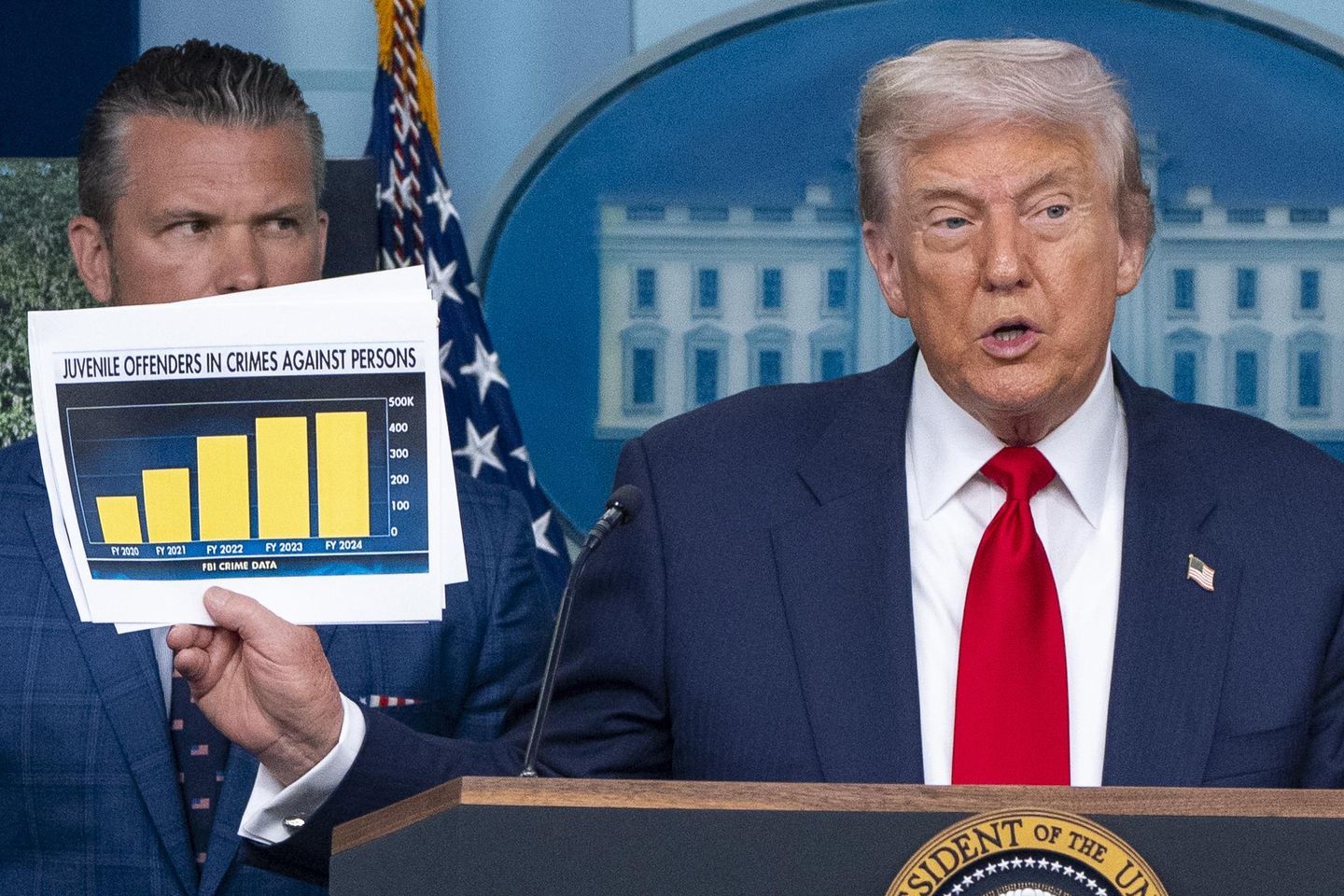
President Trump is stretching the limit of how the military can be used on American soil with the deployment of the National Guard to Washington, Los Angeles and the U.S. border while floating the idea of dispatching troops to other American cities.
It’s a significant expansion of the domestic use of the military and raises constitutional questions, some of which are currently being decided in federal court.
Since 1878, the Posse Comitatus Act has sharply curtailed the military’s role in domestic incidents with only a few carefully defined exceptions. It restricts the military from being used as civilian law enforcement and can only be dispatched in emergencies.
However, what exactly constitutes an emergency is a bit murky. Typically, it is up to the president to decide what is an emergency, said Kenneth Gray, who teaches national security at the University of New Haven.
“The emergency is what Trump defines as an emergency, but that’s the question going on right now. He’s decided to federalize law enforcement in Washington, D.C., because of the crime emergency, but is there a crime emergency?” Mr. Gray said.
Mr. Trump on Monday suggested that he could mobilize troops in Chicago, but White House press secretary Karoline Leavitt said Tuesday that the president will deal with that “when the time comes.”
SEE ALSO: National Guard hits D.C.; federal takeover already nets dozens of arrests, encampment clearings
Mr. Trump’s critics say he is relying on flimsy and contrived definitions of an emergency. After Mr. Trump declared a “public safety emergency” in Washington and deployed 800 National Guard troops to the city to help reduce crime, they insisted there was no such crisis.
Democratic Delegate Eleanor Holmes Norton, the District’s nonvoting representative in Congress, said Mr. Trump is invoking an emergency “on the pretext of a surge in crime that the numbers do not support.”
Sen. Lindsey Graham, South Carolina Republican, disagrees. He said there is a “law and order crisis in our nation’s capital that must be addressed.”
The critics argue that the police department data shows that overall crime is down 7% from last year, and violent crime is down 26%. However, the city still recorded 1,588 violent crimes as of Tuesday or seven violent crimes per day.
This year’s crime numbers also reflect a decrease from recent 20-year highs, such as 274 homicides in 2023 and a surge in carjackings two years ago that reached more than 100 per month.
Mr. Trump also saw an emergency in June when he dispatched the National Guard to Los Angeles amid a wave of protests against Immigration and Customs Enforcement officers. He said the protests “constitute a form of rebellion.”
SEE ALSO: D.C. records 100th homicide on same day Trump launches takeover to fight crime
He declared an immigration emergency at the border with Mexico, where troops are detaining migrants.
A federal judge in San Francisco is currently deciding whether Mr. Trump broke the law when he mobilized troops to Los Angeles. California has sued the Trump administration, saying the deployment was unnecessary and unconstitutional.
The Trump administration argued that the deployment of the National Guard was legal because they were there to support immigration officials who were impeded by the protesters.
If the disputes over the National Guard mobilization reach the Supreme Court, legal experts expect the justices to say it is within the purview of the president to determine when an issue rises to the level of an emergency.
Other presidents have mobilized troops on U.S. soil. President Johnson deployed the National Guard to quell the riots that erupted after Martin Luther King Jr.’s assassination.
Some also avoided it. President George W. Bush balked at calling up the National Guard in the aftermath of Hurricane Katrina, saying he didn’t know if he had the legal authority to do so.





![Gavin Newsom Threatens to 'Punch These Sons of B*thces in the Mouth' [WATCH]](https://www.right2024.com/wp-content/uploads/2025/08/Gavin-Newsom-Threatens-to-Punch-These-Sons-of-Bthces-in-350x250.jpg)
![ICE Arrests Illegal Alien Influencer During Her Livestream in Los Angeles: ‘You Bet We Did’ [WATCH]](https://www.right2024.com/wp-content/uploads/2025/08/ICE-Arrests-Illegal-Alien-Influencer-During-Her-Livestream-in-Los-350x250.jpg)








